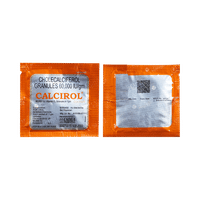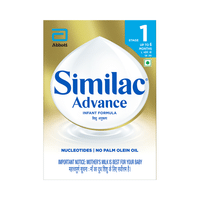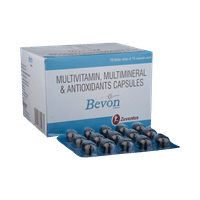Dicarlin BD 150mg/2.5mg Tablet

Rs.48for 1 strip(s) (10 tablets each)
food interaction for Dicarlin BD
alcohol interaction for Dicarlin BD
pregnancy interaction for Dicarlin BD
lactation interaction for Dicarlin BD
food
alcohol
pregnancy
lactation
Dicarlin BD 150mg/2.5mg Tablet is to be taken with food.
None
None
CAUTION
Dicarlin BD 150mg/2.5mg Tablet may cause excessive drowsiness with alcohol.
UNSAFE
Information regarding the use of Dicarlin BD 150mg/2.5mg Tablet during pregnancy is not available. Please consult your doctor.
CONSULT YOUR DOCTOR
Information regarding the use of Dicarlin BD 150mg/2.5mg Tablet during breastfeeding is not available. Please consult your doctor.
CONSULT YOUR DOCTOR
SALT INFORMATION FOR Dicarlin BD
Diethylcarbamazine(150mg)
Uses
Diethylcarbamazine is used in the treatment of worm infections and filariasis.
How it works
Diethylcarbamazine belongs to a class of medications called anthelmintics. It kills the parasitic worms that cause parasitic worm infections as well as Filariasis. This helps to treat your infection.
Common side effects
Headache, Dizziness, Vomiting, Nausea, Fever, Muscle pain, Allergic reaction, Swelling of lymph nodes, Lymphangitis, Lymphedema, Decreased appetite, Seizure, Urticaria, Rigors, General discomfort, Chills, Asthma attack, Protein in urine, Localized edema, Nodules
Levocetirizine(2.5mg)
Uses
Levocetirizine is used in the treatment of allergic conditions.
How it works
Levocetirizine is an antihistaminic medication. It treats allergy symptoms such as itching, swelling, and rashes by blocking the effects of a chemical messenger (histamine) in the body.
Common side effects
Sleepiness, Fatigue, Dryness in mouth, Headache, Vomiting, Abdominal pain, Nasopharyngitis (inflammation of the throat and nasal passages), Weakness, Hypersensitivity, Increased appetite, Vertigo, Convulsion
SUBSTITUTES FOR Dicarlin BD
5 Substitutes
5 Substitutes
Sorted By
 Rs. 28.57save 42% more per Tablet
Rs. 28.57save 42% more per Tablet Rs. 80.86pay 63% more per Tablet
Rs. 80.86pay 63% more per Tablet Rs. 31.90save 36% more per Tablet
Rs. 31.90save 36% more per Tablet Rs. 36save 27% more per Tablet
Rs. 36save 27% more per Tablet Rs. 26.90save 46% more per Tablet
Rs. 26.90save 46% more per Tablet
Expert advice FOR Dicarlin BD
- You have been prescribed Diethylcarbamazine to treat a variety of parasitic worm infections.
- It should be taken with food.
- Your doctor may monitor your blood counts and liver function before you start taking this medicine and regularly throughout your treatment.
- Avoid being near people who are sick or have infections. Inform your doctor if you develop signs of infection.
- Do not skip doses and finish the prescribed course, even if you start to feel better. Stopping it early may increase your risk of further infection.
Frequently asked questions FOR Dicarlin BD
Diethylcarbamazine
Q. What is Diethylcarbamazine used for?
Diethylcarbamazine is used to treat parasitic worm infection and filariasis (elephantiasis). Filariasis is a disease in which swelling of arms, legs or other body parts may occur. Diethylcarbamazine is used to treat Bancroft's filariasis, eosinophilic lung, loiasis and river blindness (onchocerciasis).
Q. Can the use of Diethylcarbamazine cause drowsiness?
Yes, Diethylcarbamazine can make you feel drowsy. Avoid driving, operating on machinery, working at heights, or participating in potentially dangerous activities, especially during the initial days of your treatment. However, if your condition does not improve, consult your doctor.
Q. Is Diethylcarbamazine effective?
Diethylcarbamazine is effective if used in the dose and duration advised by your doctor. Do not stop taking it even if you see improvement in your condition. If you stop using Diethylcarbamazine too early, the symptoms may return or worsen.
Levocetirizine
Q. Is Levocetirizine a steroid? What is it used for?
No, Levocetirizine is not a steroid. It is an anti-allergic medication which is used to relieve the symptoms of allergy. It relieves runny nose, sneezing and redness, itching and watering of the eyes caused by hay fever or seasonal allergies. It also relieves similar symptoms caused due to allergies to substances, such as dust mites, animal dander and mold. Additionally, it is helpful in treating symptoms of hives, including itching and rash.
Q. Does Levocetirizine make you tired and drowsy?
Yes, Levocetirizine can make you feel tired, sleepy and weak. If you have these symptoms, avoid driving or operating heavy machinery. Consult your doctor if not sure.
Q. How long does it take for Levocetirizine to work?
Levocetirizine starts working and showing improvement within an hour of taking it. However, it may take a little longer to notice the full benefits.






















